Difference between revisions of "Part:BBa K3304000"
PlatonMega (Talk | contribs) |
PlatonMega (Talk | contribs) |
||
| Line 13: | Line 13: | ||
https://2019.igem.org/wiki/images/6/62/T--Thessaloniki--results-f2.png | https://2019.igem.org/wiki/images/6/62/T--Thessaloniki--results-f2.png | ||
| + | Circuit behavior with gradient concentrations of Input Gate. Furthermore the difference in circuit leakage between plasmid derived and synthetic Gates is shown indicating the superiority of plasmid DNA for the production of DSD Gates | ||
https://2019.igem.org/wiki/images/6/61/T--Thessaloniki--results-f4.png | https://2019.igem.org/wiki/images/6/61/T--Thessaloniki--results-f4.png | ||
Fluorescent measurements of circuit behavior after the binding of the p65 homodimer to the consensus sequence. Kinetics are compared in regards to Input Gate concentration titrations | Fluorescent measurements of circuit behavior after the binding of the p65 homodimer to the consensus sequence. Kinetics are compared in regards to Input Gate concentration titrations | ||
Revision as of 02:32, 22 October 2019
Input Gate with NF-κB p65 consensus sequence
This is the Input Gate for our Chemical Reaction Network. The oligo input is DTG Part:BBa_K3304005 with initiates the strand displacement cascades. Other auxiliary strands for this gate are BTD Part:BBa_K3304006 and NTB Part:BBa_K3304007 that conclude the reactions and facilitate their trajectory to the desired direction. The output of this gate is TBB Part:BBa_K3304006 which constitutes the input for the downstream Join Gate Part:BBa_K3304001. The part comes with two PvuII cut sites and three Nt.BstNBI nicking sites that facilitate the extraction of the gate from plasmid DNA and prepare the double-stranded block for strand displacement reactions.
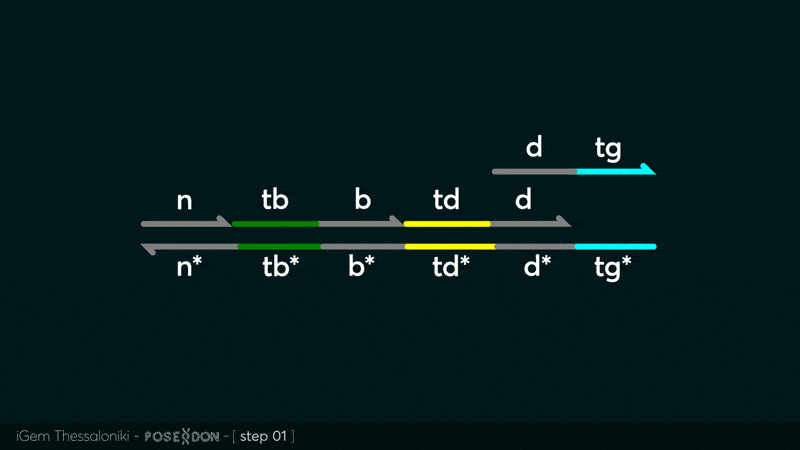
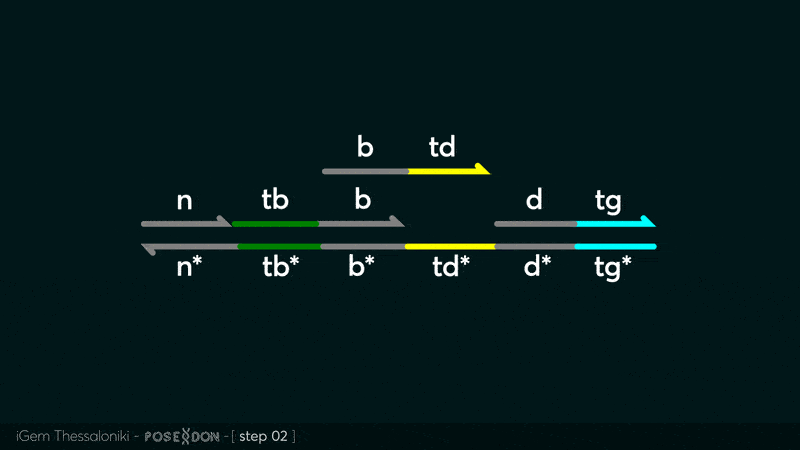
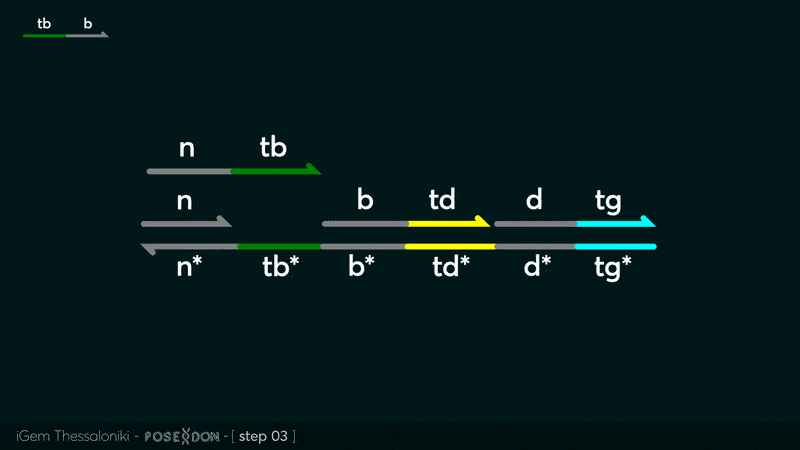 Animation describing the subsequent strand displacement Cascade steps happening in the Input Gate when no TF is bound
Animation describing the subsequent strand displacement Cascade steps happening in the Input Gate when no TF is bound
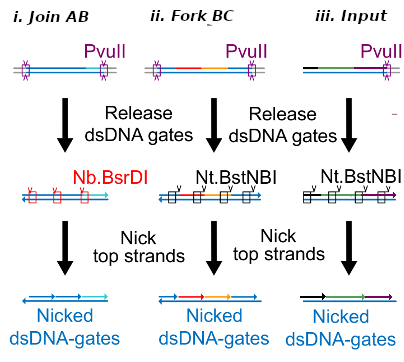
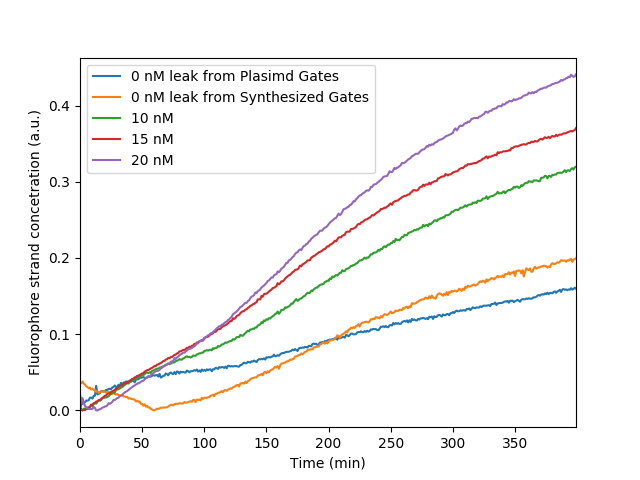 Circuit behavior with gradient concentrations of Input Gate. Furthermore the difference in circuit leakage between plasmid derived and synthetic Gates is shown indicating the superiority of plasmid DNA for the production of DSD Gates
Circuit behavior with gradient concentrations of Input Gate. Furthermore the difference in circuit leakage between plasmid derived and synthetic Gates is shown indicating the superiority of plasmid DNA for the production of DSD Gates
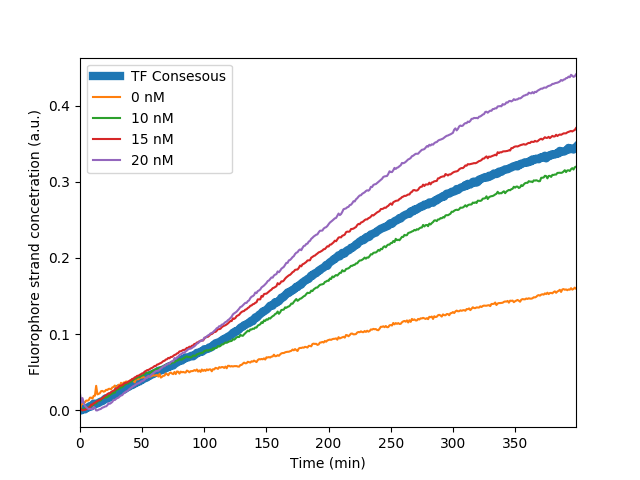 Fluorescent measurements of circuit behavior after the binding of the p65 homodimer to the consensus sequence. Kinetics are compared in regards to Input Gate concentration titrations
Fluorescent measurements of circuit behavior after the binding of the p65 homodimer to the consensus sequence. Kinetics are compared in regards to Input Gate concentration titrations
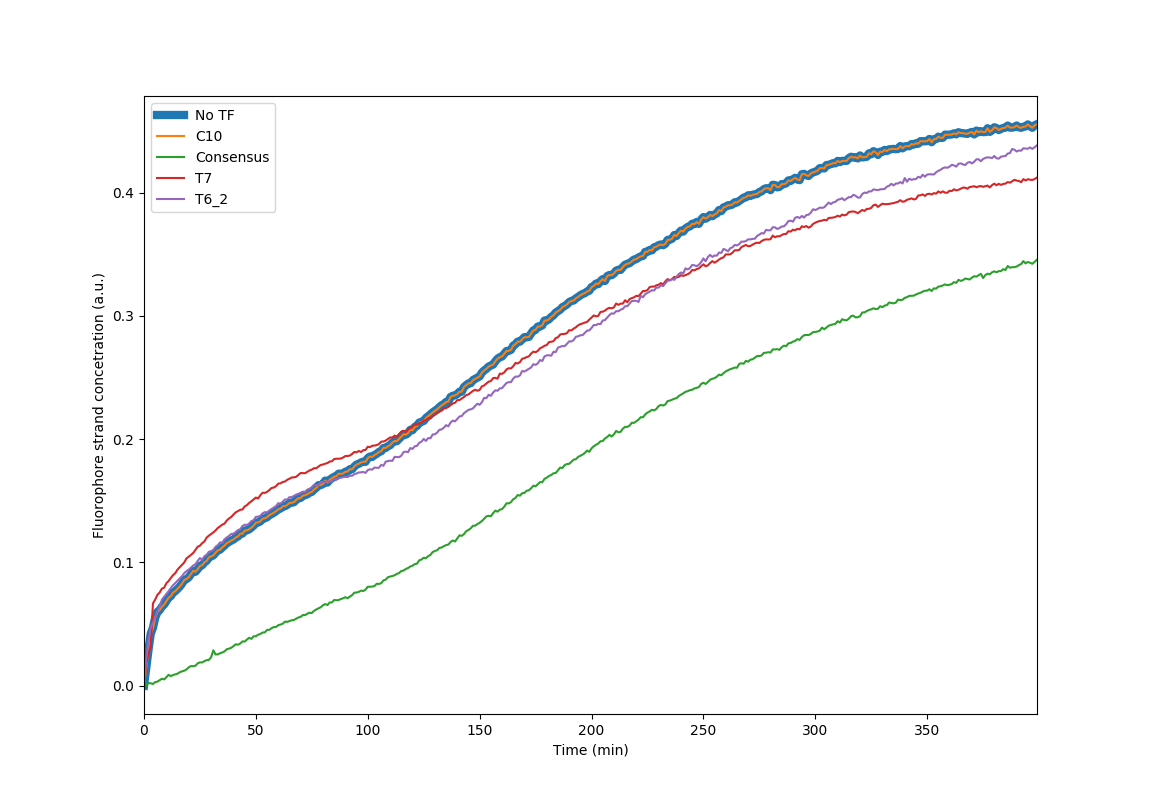 Sequence and Features
Sequence and Features
- 10COMPATIBLE WITH RFC[10]
- 12COMPATIBLE WITH RFC[12]
- 21COMPATIBLE WITH RFC[21]
- 23COMPATIBLE WITH RFC[23]
- 25COMPATIBLE WITH RFC[25]
- 1000COMPATIBLE WITH RFC[1000]
